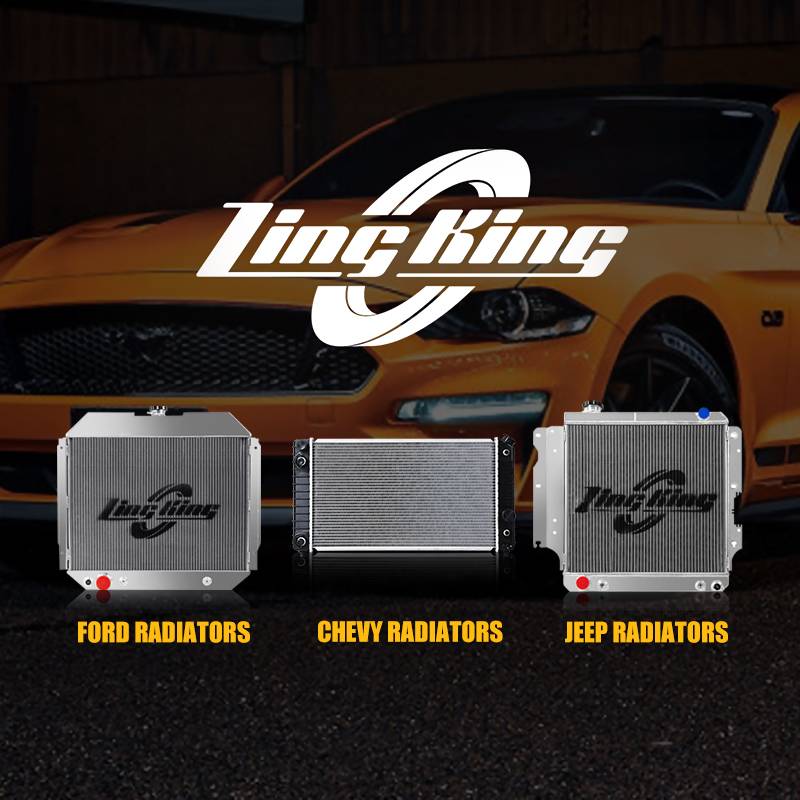
News
Heatwave Alert: Protect Your Chevrolet, Ford, or Jeep with Advanced Radiator Tech
Heatwave Alert: Protect Your Chevrolet, Ford, or Jeep with Advanced Radiator Tech
As temperatures soar globally, engine overheating has become a critical concern for drivers. For owners of Chevrolet, Ford, and Jeep vehicles, safeguarding your engine with a high-performance car radiator isn’t just a upgrade—it’s a necessity. With recent innovations in cooling technology, including breakthroughs from industry leaders like BYD’s micro-channel radiators and Great Wall Motors’ modular radiator systems , there’s never been a better time to optimize your vehicle’s cooling system. Here’s why staying ahead of the heat is vital for your ride.
Why Extreme Heat Demands Advanced Radiator Solutions
Rising global temperatures are pushing vehicles beyond their designed limits:
-
Coolant evaporation accelerates, leading to frequent low-fluid warnings.
-
Plastic tank radiators (common in OEM designs) crack under expanded pressure.
-
AC overuse strains cooling systems, especially in stop-and-go traffic.
-
Battery thermal management becomes critical for hybrid and electric vehicles .
For Ford F-150 trucks towing heavy loads, Jeep Wranglers tackling off-road trails, and Chevrolet Silverados hauling equipment, these risks are magnified. A robust aftermarket radiator can be the difference between a smooth journey and a catastrophic engine failure.
Cutting-Edge Radiator Tech: What’s New?
Innovations in radiator design are transforming vehicle cooling:
-
Micro-Channel Systems (e.g., BYD’s Patent):
-
Modular Radiator Assemblies (e.g., Great Wall Motors’ Design):
-
All-Aluminum Construction:
Brand-Specific Cooling Solutions
► For Ford Trucks:
Ford radiators in F-Series trucks require upgrades to handle EcoBoost heat soak and heavy towing. All-aluminum designs with reinforced cores prevent coolant loss and maintain optimal temps under load.
► For Jeep SUVs:
Jeep radiators face unique challenges from low-speed off-roading and debris impact. Upgraded units with higher fin density (14-16 FPI) ensure airflow remains consistent even in rugged environments.
► For Chevrolet Models:
Chevrolet radiators in Silverado and Corvette models benefit from stepped-core technology, which optimizes coolant flow for high-output engines. This reduces the risk of overheating during sustained performance driving .
5 Signs Your Radiator Is Failing
-
Temperature Gauge Spikes in traffic or while towing.
-
Coolant Leaks (often from cracked plastic tanks).
-
Discolored or Rusty Coolant indicating internal corrosion.
-
AC Performance Drops when the engine is hot.
-
Frequent Coolant Top-Ups without visible leaks.
If you notice these symptoms, your car radiator likely needs replacement—especially before summer peaks.
Why Choose Our Radiators?
We specialize in high-performance radiators for American brands:
-
Direct Fitment: Perfect compatibility with Chevrolet, Ford, and Jeep models.
-
Leak-Proof Construction: Robotic welding ensures durability .
-
30%+ More Cooling Capacity: Ideal for extreme heat and heavy loads.
Market Insights: Radiators Are Evolving
The global car radiator market is projected to reach $79.49 billion by 2031 , driven by demand for efficient cooling solutions. Key trends include:
-
Lightweight Materials: Aluminum radiators dominate due to their corrosion resistance and superior heat transfer .
-
Electrification Compatibility: Radiators for hybrids and EVs prioritize battery and electronics cooling .
-
Sustainability: Modular designs reduce waste by allowing component-level replacements .
Don’t Gamble with Engine Health
Every overheating incident risks $2,500+ in engine repairs. Protect your investment with a radiator built for reliability.
#CarRadiator #Heatwave #OverheatingFix #ChevroletRadiator #FordRadiator #JeepRadiator #SummerDriving #EngineCooling #RadiatorUpgrade #CoolingSystem #AutoMaintenance #FordTrucks #JeepWrangler #ChevySilverado #ExtremeHeat #ClimateReady #EngineProtection #ShopifyAuto
